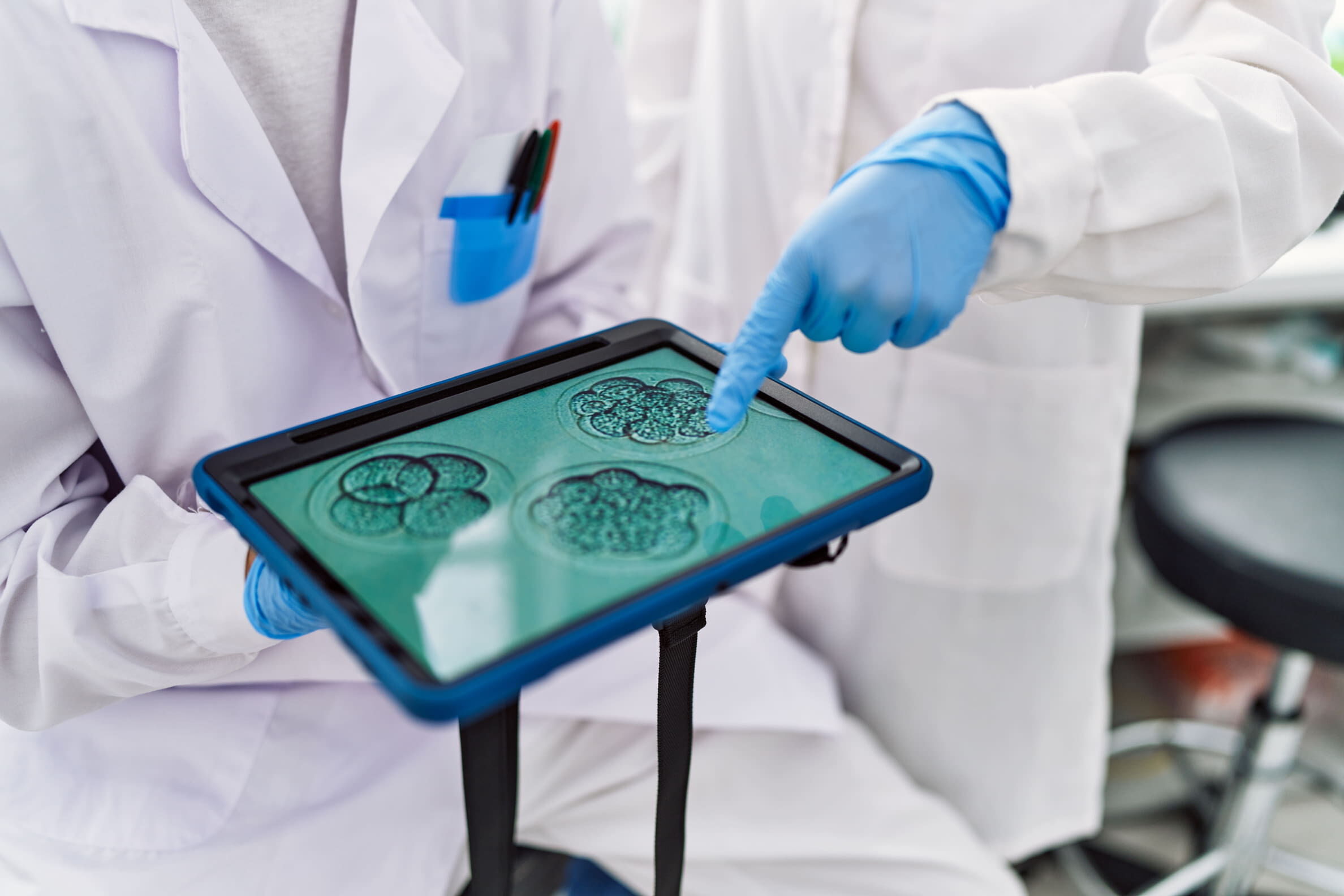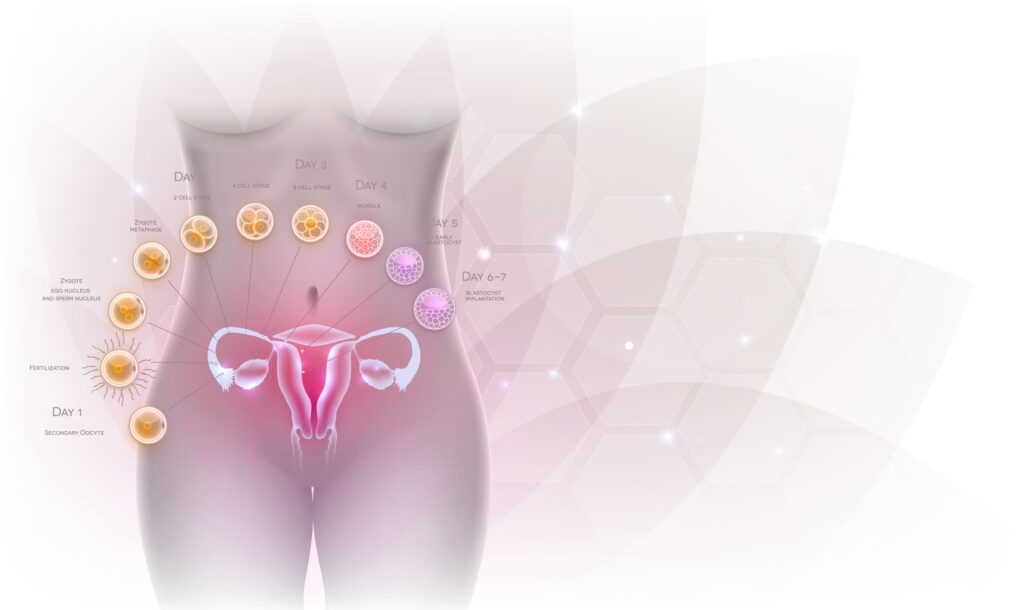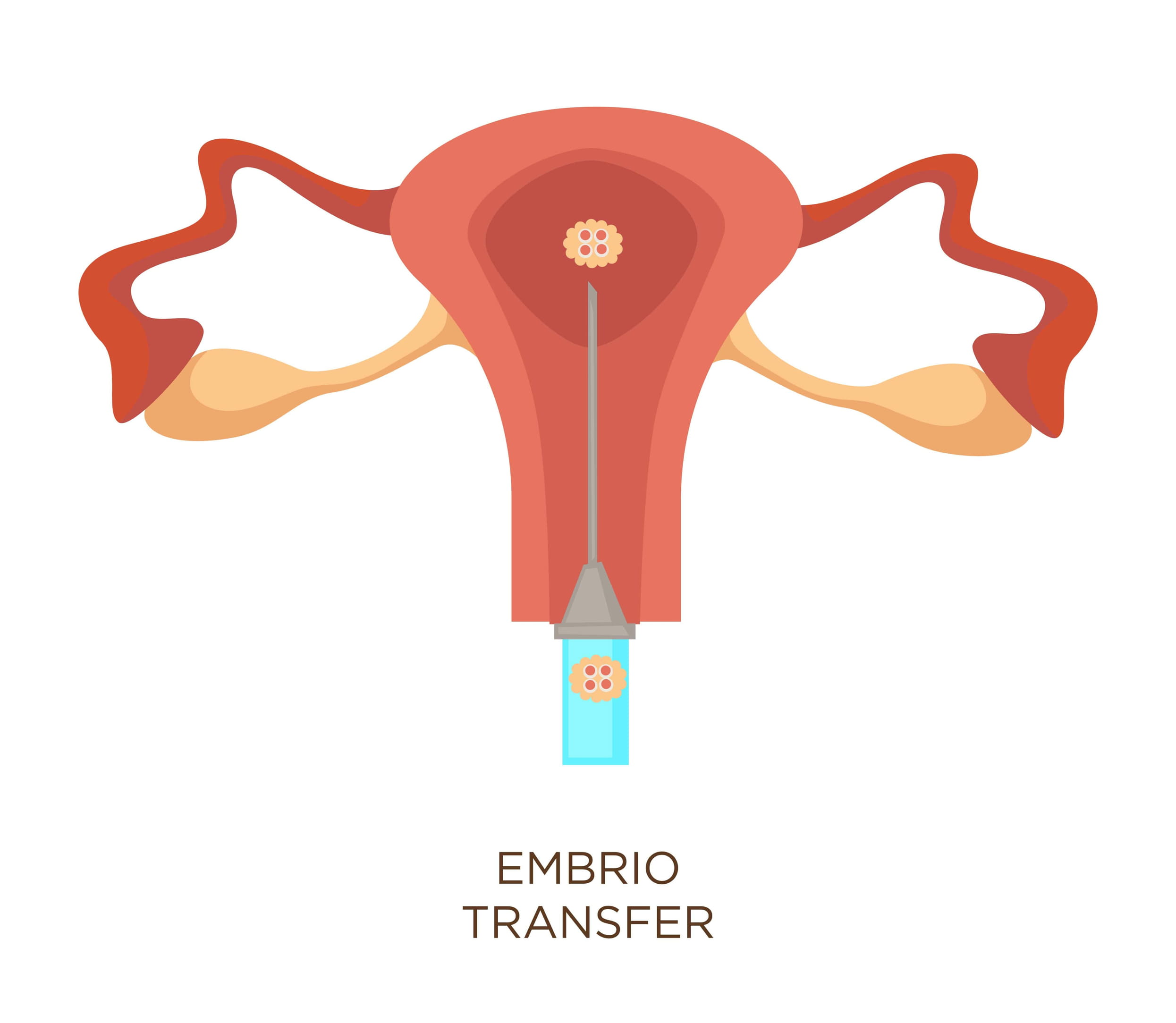

Experience the pinnacle of fertility care with our advanced Blastocyst Culture & Transfer services at our hospital in Ahmedabad, led by renowned fertility specialist Dr. Maulik Shah.
Blastocyst culture involves nurturing embryos in the laboratory until they reach the blastocyst stage, typically around day 5 or 6 after fertilization. This advanced technique allows for the selection of the most viable embryos for transfer, optimizing the chances of successful implantation and pregnancy.
Under the guidance of Dr. Maulik Shah, our experienced team utilizes cutting-edge technology and personalized care to ensure the highest standards of treatment. With a focus on excellence and compassion, we are committed to helping you achieve your dreams of parenthood through advanced Blastocyst Culture & Transfer at our hospital in Ahmedabad. Schedule a consultation with us today to begin your journey towards building a family.
Blastocyst culture is an advanced technique used in in vitro fertilization (IVF) where embryos are cultured in the laboratory until they reach the blastocyst stage. Normally, this occurs around day 5 or 6 after fertilization.
During blastocyst culture, embryos are monitored and nurtured in a controlled environment to encourage their growth and development. This extended culture period allows embryologists to assess the embryos more accurately, as only the healthiest and most viable embryos typically progress to the blastocyst stage.
Blastocysts are more developed than embryos at earlier stages, consisting of about 70-100 cells organized into two distinct parts: the inner cell mass, which will form the fetus, and the outer layer called the trophectoderm, which will become the placenta.

Blastocyst culture is an advanced technique used in in vitro fertilization (IVF) where embryos are cultured in the laboratory until they reach the blastocyst stage. Normally, this occurs around day 5 or 6 after fertilization.
During blastocyst culture, embryos are monitored and nurtured in a controlled environment to encourage their growth and development. This extended culture period allows embryologists to assess the embryos more accurately, as only the healthiest and most viable embryos typically progress to the blastocyst stage.
Blastocysts are more developed than embryos at earlier stages, consisting of about 70-100 cells organized into two distinct parts: the inner cell mass, which will form the fetus, and the outer layer called the trophectoderm, which will become the placenta.
The blastocyst stage is considered optimal for embryo transfer during IVF because it allows for better selection of embryos with higher implantation potential. By transferring blastocysts into the uterus, the chances of successful implantation and pregnancy are increased, leading to improved IVF success rates.
Overall, blastocyst culture plays a crucial role in modern IVF techniques, offering couples undergoing fertility treatment a higher likelihood of achieving a successful pregnancy.

In Ahmedabad, the blastocyst culture process is a crucial step in the journey of assisted reproduction, aimed at maximizing the chances of a successful pregnancy. Here’s an overview of the blastocyst culture process at our facility:
Throughout the blastocyst culture process, our experienced team at our facility in Ahmedabad provides personalized care and support to patients, guiding them every step of the way towards their goal of building a family. We utilize state-of-the-art technology and adhere to the highest standards of care to ensure the best possible outcomes for our patients.

Blastocyst transfer is a pivotal step in the in vitro fertilization (IVF) process, offering enhanced chances of successful implantation and pregnancy. In Ahmedabad, our facility specializes in blastocyst transfer procedures, providing advanced fertility solutions for individuals and couples striving to conceive. Here’s an overview of the blastocyst transfer process at our facility:
Dr. Maulik Shah, a distinguished fertility specialist in Ahmedabad, possesses extensive expertise in blastocyst techniques, revolutionizing the field of assisted reproduction. With a commitment to excellence and innovation, Dr. Shah’s proficiency in blastocyst culture and transfer has significantly contributed to improved IVF success rates and enhanced patient outcomes.
As a leader in the field, Dr. Shah employs advanced laboratory protocols and state-of-the-art technology to optimize blastocyst development and selection. His meticulous approach ensures the identification of the highest-quality embryos, maximizing the chances of successful implantation and pregnancy.
Patients benefit from Dr. Shah’s personalized care and individualized treatment plans tailored to their unique needs and circumstances. With a compassionate demeanor and unwavering dedication, he guides patients through every step of the blastocyst process, providing support and reassurance along the way.
Through his unparalleled expertise and unwavering commitment to patient care, Dr. Maulik Shah continues to redefine excellence in blastocyst techniques, offering hope and fulfillment to individuals and couples on their journey to parenthood.
At our fertility center in Ahmedabad, we understand that cost can be a significant consideration for patients undergoing blastocyst transfer. That’s why we strive to offer transparent pricing and flexible financing options to make fertility treatment accessible to all.
Our pricing for blastocyst transfer includes comprehensive care throughout the entire treatment process, from initial consultations to embryo transfer and follow-up appointments. We believe in providing transparent pricing upfront, ensuring that patients are fully informed about the costs involved.
Additionally, we offer various financing options to help patients manage the financial aspects of their fertility treatment. These options may include payment plans, financing programs, and assistance with insurance coverage verification.
During your initial consultation with our fertility specialist, we will discuss the cost of blastocyst transfer and explore financing options that suit your budget and individual needs. Our goal is to provide affordable fertility care without compromising on quality or success rates.
If you have any questions or concerns about the cost of blastocyst transfer or financing options available, please don’t hesitate to contact us. Our dedicated financial counselors are here to assist you every step of the way, ensuring that cost is not a barrier to achieving your dreams of parenthood.
Blastocyst culture is a process where embryos are grown in the lab until they reach a more advanced stage called the blastocyst stage. This technique is used in IVF to select the healthiest embryos for transfer into the uterus, increasing the chances of pregnancy.
Blastocyst culture allows embryologists to observe embryo development more closely, identifying the embryos with the highest potential for successful implantation. This increases the likelihood of a successful pregnancy following IVF treatment.
Transferring blastocysts offers several advantages, including higher implantation rates, reduced risk of multiple pregnancies, and improved selection of the most viable embryos for transfer.
Embryos typically reach the blastocyst stage around day 5 or 6 after fertilization. During this time, they undergo significant development, making it easier for embryologists to select the best embryos for transfer.
Not all embryos will develop into blastocysts, and some may stop growing before reaching this stage. Embryologists carefully assess embryo quality and growth to determine which ones are suitable for blastocyst transfer.
Success depends on various factors, including embryo quality, the woman’s age, and overall reproductive health. Our experienced team in Ahmedabad considers these factors to optimize the chances of a successful outcome.
Blastocyst transfer is associated with a lower risk of multiple pregnancies compared to transferring earlier-stage embryos. By transferring fewer high-quality blastocysts, we aim to achieve a single healthy pregnancy.
The procedure is similar to a standard embryo transfer and is typically quick and painless. Patients may experience some mild discomfort, but it generally does not require anesthesia.
Patients may be advised to take it easy for a few days following the procedure and avoid strenuous activities. Our team provides personalized guidance to support the implantation process and maximize the chances of success.
Our facility in Ahmedabad boasts high success rates with blastocyst transfer, thanks to our experienced team and state-of-the-art technology. We are dedicated to helping patients achieve their dreams of parenthood with personalized care and expertise.